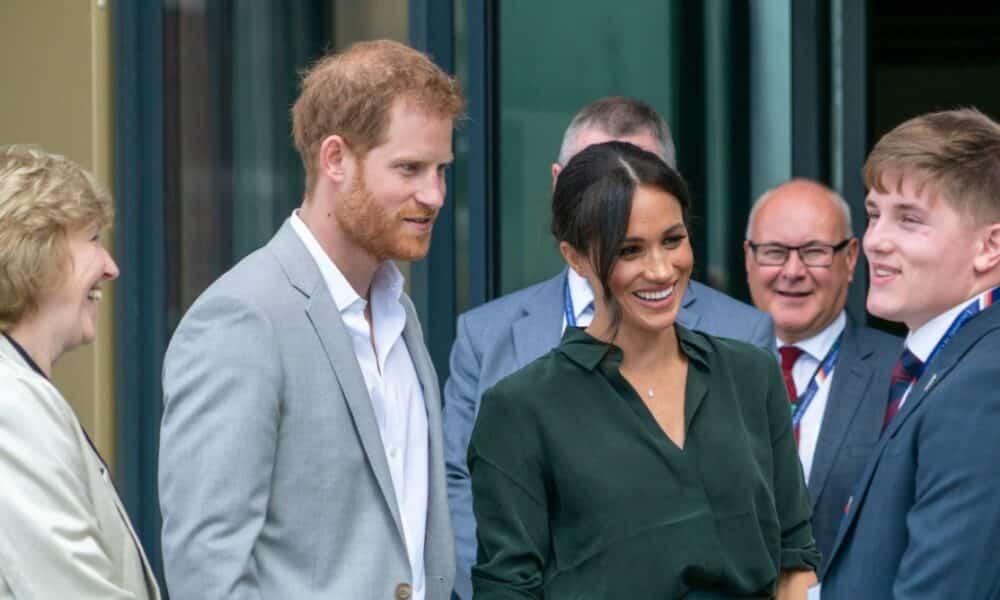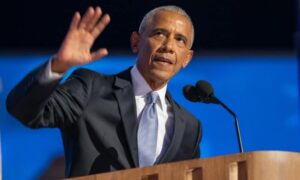Even five years after their official departure from the British Royal Family, Meghan Markle and Prince Harry remain embroiled in controversies surrounding their behavior and workplace demands. Recent reports highlight accusations of a toxic work environment and unusual formalities imposed on staff, even after stepping back from royal duties.
Reports from insiders indicate that the Duke and Duchess of Sussex require their employees to address them as “sir” and “ma’am.” This formality has sparked criticism, particularly in the United States, where the couple now resides. According to sources, this behavior is seen as an effort to maintain symbolic ties to their royal status, despite their physical and institutional distance from the monarchy.
Among the most significant allegations, former staff members have described demanding and, at times, intimidating behaviors. The persistence of these practices, even in a non-royal setting, has significantly impacted the couple’s public image, placing them under continued scrutiny from both the media and the public.
Allegations of a hostile work environment
Internal sources reveal that the work environment fostered by Meghan Markle and Prince Harry is marked by high staff turnover and reports of tense episodes. Since 2018, at least 18 high-ranking staff members have left their roles, many citing emotionally draining and challenging working conditions. Most recently, Josh Kettler, who served as chief of staff, stepped down after just three months.
Former employees have reported emotional outbursts and intense pressure. Meghan Markle, for instance, was described as relentless in her expectations, a trait that reportedly caused discomfort among team members. Some incidents were said to have brought individuals to tears. These accounts echo earlier allegations of inappropriate behavior during the couple’s time in the Royal Family.
Formality as a strategy for distinction
The insistence on being addressed as “sir” and “ma’am” is perceived as a way to maintain an air of exclusivity, even after relinquishing royal duties. According to an insider, Meghan and Harry value the distinction their noble titles provide, especially in the U.S., where fame and wealth are more common.
“In the U.S., money and celebrity are everywhere, but a title of blood is rare and valuable,” a source stated. This perspective appears to shape the couple’s behavior and underscores how they position themselves publicly, even far from the British monarchy.
Public perception: impacts and challenges faced by the couple
Since relocating to the U.S., Meghan Markle and Prince Harry have faced challenges in cementing their public image. Projects such as Harry’s controversial memoir and Meghan’s Netflix series have received mixed reactions. While some view these endeavors as legitimate efforts to tell their stories, others believe they expose the couple to criticism and scrutiny.
Additionally, challenges in content production and public relations highlight the couple’s difficulty in balancing private life with public expectations. Reports of formal demands and a toxic work environment further complicate their reputation, impacting their credibility and relationships with fans and supporters.
Defenses and alternative perspectives
Despite numerous accusations, Meghan Markle has defenders. Jane Marie, a producer who worked with the Duchess, described her as warm and charismatic. Meghan herself has publicly stated that she is demanding because she strives for excellence, denying claims that her expectations are unreasonable or abusive.
This duality of accusations and defenses underscores the complexity of Meghan Markle’s public persona. To some, she represents a strong woman unwilling to settle for less; to others, her behavior is seen as authoritarian and inconsistent with the empathetic image the couple often promotes.
Connection to royal titles: meaning and implications
Despite stepping away from formal royal duties, Meghan and Harry remain tied to their titles as the Duke and Duchess of Sussex. This connection directly impacts their public identity and potentially their relationships with staff and collaborators. The continued use of these titles is viewed as a way to reinforce their position, both socially and culturally, in the various contexts in which they operate.
For critics, this approach reflects an effort to maintain ties to the monarchy, even after the controversies surrounding their official departure in 2020. The couple, however, appears to use this strategy as a differentiation tool, particularly in a competitive celebrity landscape like that of the United States.
List of behaviors reported by employees
- Formal demands for being addressed as “sir” and “ma’am.”
- High expectations and tight deadlines considered unrealistic.
- Emotional outbursts and tense episodes with the team.
- Rigid monitoring of employees’ tasks and progress.
- Lack of professional stability, evidenced by frequent staff turnover.
The Sussexes’ journey over the past five years
Since their official departure from royal duties, Meghan and Harry have undergone significant changes and milestones:
- In 2020, they renounced royal roles and relocated to the United States.
- They launched media projects, including Harry’s memoir and a Netflix documentary.
- They faced allegations of a toxic work environment and challenging relationships with staff.
- They continued advocating for social causes while pursuing financial independence.
Historical and cultural significance of royal titles
British noble titles have deep historical and symbolic meanings. Over centuries, they have been tools for social and political distinction. For Meghan and Harry, the title of Duke and Duchess of Sussex was granted by Queen Elizabeth II as a mark of honor. However, their continued use of these titles post-resignation has sparked debates about their relevance in a modern context.
Statistics and data on the impact of allegations
The accusations against Meghan and Harry have had notable repercussions. Recent surveys indicate a 15% drop in the couple’s popularity in the United States since 2023. Furthermore, approximately 40% of respondents in a national poll believe the couple’s actions contradict the authenticity they claim to champion.
Key takeaways and potential implications
The controversies surrounding Meghan Markle and Prince Harry continue to draw global attention. Allegations of inappropriate behavior and their approach to preserving titles highlight the challenges of navigating life between the private and public spheres. As new revelations emerge, the impact of these developments on the couple’s image remains a central question.

Even five years after their official departure from the British Royal Family, Meghan Markle and Prince Harry remain embroiled in controversies surrounding their behavior and workplace demands. Recent reports highlight accusations of a toxic work environment and unusual formalities imposed on staff, even after stepping back from royal duties.
Reports from insiders indicate that the Duke and Duchess of Sussex require their employees to address them as “sir” and “ma’am.” This formality has sparked criticism, particularly in the United States, where the couple now resides. According to sources, this behavior is seen as an effort to maintain symbolic ties to their royal status, despite their physical and institutional distance from the monarchy.
Among the most significant allegations, former staff members have described demanding and, at times, intimidating behaviors. The persistence of these practices, even in a non-royal setting, has significantly impacted the couple’s public image, placing them under continued scrutiny from both the media and the public.
Allegations of a hostile work environment
Internal sources reveal that the work environment fostered by Meghan Markle and Prince Harry is marked by high staff turnover and reports of tense episodes. Since 2018, at least 18 high-ranking staff members have left their roles, many citing emotionally draining and challenging working conditions. Most recently, Josh Kettler, who served as chief of staff, stepped down after just three months.
Former employees have reported emotional outbursts and intense pressure. Meghan Markle, for instance, was described as relentless in her expectations, a trait that reportedly caused discomfort among team members. Some incidents were said to have brought individuals to tears. These accounts echo earlier allegations of inappropriate behavior during the couple’s time in the Royal Family.
Formality as a strategy for distinction
The insistence on being addressed as “sir” and “ma’am” is perceived as a way to maintain an air of exclusivity, even after relinquishing royal duties. According to an insider, Meghan and Harry value the distinction their noble titles provide, especially in the U.S., where fame and wealth are more common.
“In the U.S., money and celebrity are everywhere, but a title of blood is rare and valuable,” a source stated. This perspective appears to shape the couple’s behavior and underscores how they position themselves publicly, even far from the British monarchy.
Public perception: impacts and challenges faced by the couple
Since relocating to the U.S., Meghan Markle and Prince Harry have faced challenges in cementing their public image. Projects such as Harry’s controversial memoir and Meghan’s Netflix series have received mixed reactions. While some view these endeavors as legitimate efforts to tell their stories, others believe they expose the couple to criticism and scrutiny.
Additionally, challenges in content production and public relations highlight the couple’s difficulty in balancing private life with public expectations. Reports of formal demands and a toxic work environment further complicate their reputation, impacting their credibility and relationships with fans and supporters.
Defenses and alternative perspectives
Despite numerous accusations, Meghan Markle has defenders. Jane Marie, a producer who worked with the Duchess, described her as warm and charismatic. Meghan herself has publicly stated that she is demanding because she strives for excellence, denying claims that her expectations are unreasonable or abusive.
This duality of accusations and defenses underscores the complexity of Meghan Markle’s public persona. To some, she represents a strong woman unwilling to settle for less; to others, her behavior is seen as authoritarian and inconsistent with the empathetic image the couple often promotes.
Connection to royal titles: meaning and implications
Despite stepping away from formal royal duties, Meghan and Harry remain tied to their titles as the Duke and Duchess of Sussex. This connection directly impacts their public identity and potentially their relationships with staff and collaborators. The continued use of these titles is viewed as a way to reinforce their position, both socially and culturally, in the various contexts in which they operate.
For critics, this approach reflects an effort to maintain ties to the monarchy, even after the controversies surrounding their official departure in 2020. The couple, however, appears to use this strategy as a differentiation tool, particularly in a competitive celebrity landscape like that of the United States.
List of behaviors reported by employees
- Formal demands for being addressed as “sir” and “ma’am.”
- High expectations and tight deadlines considered unrealistic.
- Emotional outbursts and tense episodes with the team.
- Rigid monitoring of employees’ tasks and progress.
- Lack of professional stability, evidenced by frequent staff turnover.
The Sussexes’ journey over the past five years
Since their official departure from royal duties, Meghan and Harry have undergone significant changes and milestones:
- In 2020, they renounced royal roles and relocated to the United States.
- They launched media projects, including Harry’s memoir and a Netflix documentary.
- They faced allegations of a toxic work environment and challenging relationships with staff.
- They continued advocating for social causes while pursuing financial independence.
Historical and cultural significance of royal titles
British noble titles have deep historical and symbolic meanings. Over centuries, they have been tools for social and political distinction. For Meghan and Harry, the title of Duke and Duchess of Sussex was granted by Queen Elizabeth II as a mark of honor. However, their continued use of these titles post-resignation has sparked debates about their relevance in a modern context.
Statistics and data on the impact of allegations
The accusations against Meghan and Harry have had notable repercussions. Recent surveys indicate a 15% drop in the couple’s popularity in the United States since 2023. Furthermore, approximately 40% of respondents in a national poll believe the couple’s actions contradict the authenticity they claim to champion.
Key takeaways and potential implications
The controversies surrounding Meghan Markle and Prince Harry continue to draw global attention. Allegations of inappropriate behavior and their approach to preserving titles highlight the challenges of navigating life between the private and public spheres. As new revelations emerge, the impact of these developments on the couple’s image remains a central question.






